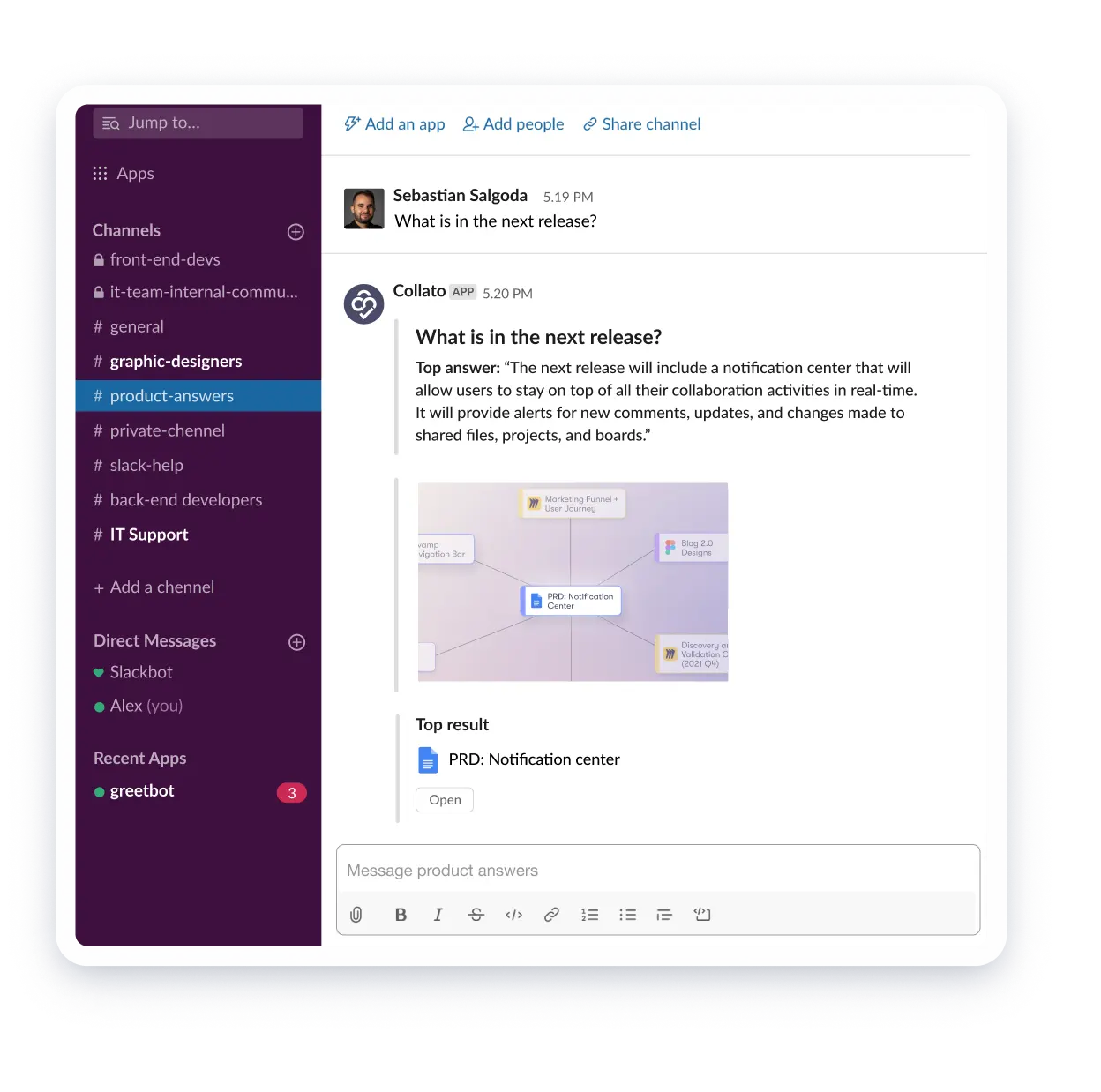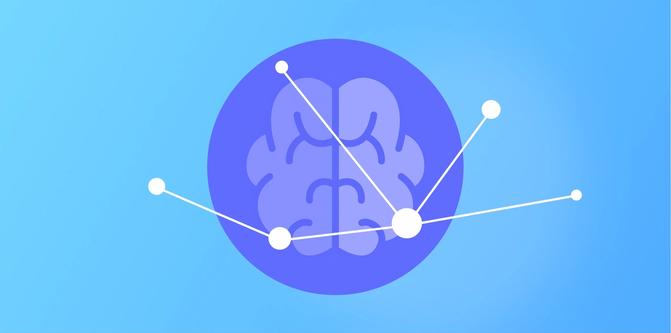The Impact of AI on Business

How will generative AI change the way we work?
I’ll let you in on a little secret: I never studied anything related to artificial intelligence at university. I didn’t study business, marketing, or computer science either.
I studied political science and economics.
Perhaps unsurprisingly, generative AI isn’t just a tech thing. Its implications will be felt across industries and economies, political spheres and markets.
Let me explain.
AI increases productivity, efficiency, and growth. Exponentially and immediately.
Picture a future where machines not only understand and talk like us, but also, well, work like us, too. Perhaps unsurprisingly, behind the scenes, generative AI is changing economic considerations. By revolutionizing productivity and adding trillions of dollars to the global economy, we’re going to be hearing a lot more about it in the not-so-distant future. With its ability to streamline processes, enhance efficiency, and unlock innovation, generative AI promises to be the Midas Touch for businesses and industries across the globe.
From reorganizing and classifying data to crafting personalized customer experiences, generative AI has the potential to supercharge businesses in sectors as diverse as healthcare, finance, and entertainment. And all the while, it frees up workers to focus on less mundane or tedious tasks. It's not just about productivity, but growth, too.
But how did we get here? It all started with investments in machine learning and deep learning, laying the groundwork for generative AI's implementation. Every day, the capabilities of generative AI models have leaped forward, captivating investors and sparking a surge of funding. In a recent report by McKinsey and Company,
- In the first five months of 2023, a staggering $12 billion flowed into the generative AI industry.
- In the near future, it’s predicted that profitability will increase 38% on average across the top 16 industries.
AI speaks our language.
Generative AI can significantly reduce communication costs by empowering chatbots to deliver personalized responses to complex inquiries. The largest roadblock in the past was that machines had a really hard time stringing parts of one sentence together, let alone answering prompts in a conversational chatbot type of way. I mean, think about it, sentences have a lot of moving parts. And humans are lazy. We have words like “it” and “that” that don’t necessarily even mean things sometimes. If I say “it has changed the game” here, you know “it” probably refers to AI. Up until recently, a computer wouldn’t.
Language is what made humans so successful. There is nothing in the known universe like human communication. But the ability to manipulate language has its dangers. It can influence emotions, create misunderstandings, and distort the truth. With generative AI's proficiency in language generation, there could be a heightened risk of these negative aspects being amplified.
AI will destabilize business. And then stabilize it again.
Generative AI already has revolutionized product research and development (R&D) by enhancing market reporting, ideation, virtual design, virtual simulations, and physical test planning. It can optimize designs, reduce costs, improve product testing and quality, and enable faster decision-making.
The emergence of generative AI brings with it the potential for destabilization compared to previous generations of artificial intelligence and automation. To cut to the chase, modern AI automates things that we weren’t even sure could ever be automated. Professions and roles that we deemed “safe” from twenty-first-century automation just aren’t, blatantly, “safe” anymore.
- Generative AI has the potential to deliver productivity gains of 10-15% of overall R&D cost
- In a study by PwC, AI could contribute up to $15.7 trillion to the global economy by 2030.
- But, AI could automate up to 45% of the activities that people are paid to perform
- This could potentially remove $2 trillion in annual wages
This raises significant concerns about job displacement and the economic implications for individuals and society as a whole. But, it's also important to recognize that throughout history, technological advancements have disrupted industries and reshaped the nature of work, too. Directly, we don’t know what the future holds. We can only guess.
Generative AI's value extends beyond text-based or other AI applications, though. It can unlock significant value by leveraging multimodal capabilities in areas like image generation, audio, and video. These capabilities have applications in marketing, media industries, and R&D.
- The potential value generated by generative AI across industries ranges from $2.6 to $4.4 trillion. Wowza.
- Generative AI could create an incremental economic impact of 15-40% above other AI and analytics.
In terms of industry impact, generative AI can contribute significant value to sectors such as retail, high-tech, healthcare, energy, and manufacturing. For example, in retail, generative AI can boost performance in functions like marketing and customer interactions, leading to an estimated additional value of $310 billion. In the high-tech industry, the speed and efficiency improvements in software development through generative AI can generate substantial value, revolutionizing the industry. Again. Software engineering, for example, is expected to completely change in the next decade to be extremely AI focused.
AI will increase your business's productivity by revolutionizing company knowledge management.
Generative AI drastically improves productivity. Staggeringly, generative AI’s total economic benefit is projected to be $6.1 trillion to $7.9 trillion annually.
One of the ways generative AI improves productivity by allowing for information to instantly and easily be recalled. There are a few reasons for this:
- Natural language processing allows generative AI to not only understand what you write in a search prompt but also allows it to understand the language that’s in your documents or information, too.
- Generative AI can also provide summaries and generate content based on whatever imputed information it has access to.
Sometimes having huge swathes of information imputed to AI isn’t ideal because it’s not customizable, dynamic, or relevant. And there is no real way to know where that information is coming from.
Collato solves all of those problems. Constantly searching for information at work wastes time and energy. Collato streamlines information and eliminate information silos by syncing your team’s scattered data across various platforms like Confluence, Jira, Notion, and Google Docs. Collato prevents double-work and reduces redundancy within organizations by accessing a centralized hub of information, eliminating the need to search through multiple tools and folders.
By empowering teams with instant access to comprehensive work knowledge, Collato smartens up companies and enables employees to ask anything about their work-related information. This eliminates the need for repetitive tasks, streamlines workflows, and fosters a culture of efficiency and productivity. Collato’s AI has made it possible to make the most informed decisions, with the right information, instantly.
Collato’s AI-powered search enables quick access to relevant links and files, providing automatic answers to questions and generating summaries for efficient information consumption. The setup process is seamless, allowing users to start with a single document and scale up to an enterprise-wide search engine. Security is prioritized at Collato, with customizable search permissions and strict data security measures in place, including SOC 2 certification and GDPR compliance. All data is protected with secure encryption, ensuring the utmost confidentiality and privacy.
And! We just launched our Collato Slack Assistant, so now all of the information your team needs is instantly available directly in Slack.

AI redefines the Future of Work.
The Future of Work is what we’re all about here at Collato. Employee well-being is just as important as productivity. We believe that human-centric workplaces will be the way forward.
Yeah, AI will change that too. But we believe that human-centricity and using AI aren’t mutually exclusive. Here’s why:
- AI systems boost productivity and efficiency by streamlining tasks, analyzing data, and providing valuable insights.
- AI presents new opportunities for entrepreneurship and innovation, empowering individuals to create AI-driven products or services.
- AI drives changes in job roles, work processes, and organizational structures, creating space for individuals to contribute their unique skills in a more human-centric way.
- Soft skills, or real skills, such as human communication, collaboration, and adaptability become crucial in a human-centric workplace augmented by AI.
- AI technology opens doors to new and unknown types of work, creating opportunities for individuals to explore emerging fields.
The Future of Work will look different than we thought, even just a few years ago. But our goals will remain the same: people first, magic in what we do, adaptability, and workplace understanding.
AI and your company’s values and ethics.
The development and deployment of generative AI bring crucial ethical and societal considerations that we can’t overlook. There is a need for a collaborative effort between businesses and society to ensure the equitable sharing of the benefits generated by generative AI.
Experts from diverse fields such as computer science, ethics, law, and social sciences should, and already are, working to address some of these concerns. By prioritizing values and ethics, we can create a human-centric future where the benefits of generative AI are realized while minimizing potential inequalities and displacement.
TL;DR
Generative AI revolutionizes productivity and efficiency, adding trillions to the global economy. However, it also brings destabilization and workforce concerns that are constantly evolving. Protective measures like training and office policy are needed to mitigate potential negative impacts.
In research and development, generative AI optimizes designs, reduces costs, and improves testing. It extends its impact to image, audio, and video applications. Across industries, generative AI generates substantial value.
The future of work embraces a human-centric approach, leveraging AI for productivity, entrepreneurship, and redefined job roles. Soft skills are becoming ever more crucial. Ethical considerations are vital, requiring collaboration and equitable sharing of benefits.




